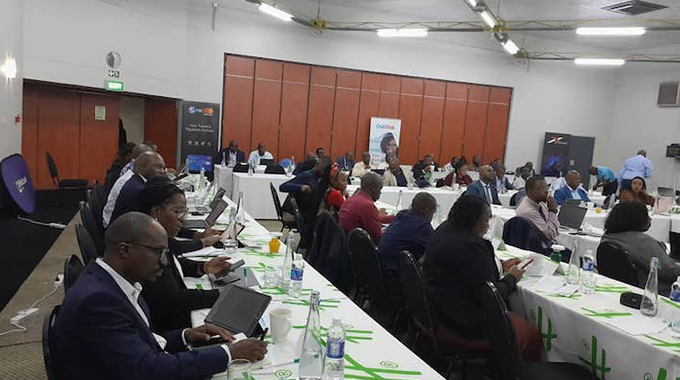‘Digital economy drives NDS1, Vision 2030 aspirations’

Sikhulekelani Moyo
INDUSTRY and Commerce Deputy Minister, Raj Modi, says the increasing investments in digital technologies are driving Zimbabwe’s momentum towards achieving the transformative aspirations of the National Development Strategy (NDS1) and Vision 2030.
Research has already shown that 67 percent of the national population resides in rural areas, thus, presenting huge opportunities for ICT players to bridge that digital gap.
With this expansion comes the need to provide technological solutions that drive business agility and effective customer service that keeps up with changing trends and expectations, said Deputy Minister Modi.
Speaking in Bulawayo yesterday during the inaugural customer interface breakfast meeting organised by Powertel Communications, the Deputy Minister said enhanced service delivery and customer expectations were critical to economic growth.
He said the launch of the customer interface initiatives in Bulawayo, was significant given the city’s prime position as an industrial hub, and hoped the programme will be rolled out to all major towns and cities in Zimbabwe.
The Government of Zimbabwe prioritizes such initiatives aimed at boosting the economy, especially in the space of Information and Communications Technology (ICT), said Deputy Minister Modi.
“The digital economy is one of the key drivers to the attainment of the goals and aspirations of the National Development Strategy and Vision 2030,” he said.
“As enunciated by His Excellence the President of the Republic of Zimbabwe Dr ED Mnangagwa, Vision 2030 is focused on promoting innovation, entrepreneurship, equitable development, and prosperity for all, hence the internet and other ICTs play a key role.”
The Deputy Minister said it was encouraging to note that Powertel was rolling out power backups at all its network nodes aimed at improving service reliability and a 99,99 percent network uptime.
As a strategic response to Vision 2030, he said Zesa as a whole, will also be rolling out a programme of total electrification and datafication.
“Accordingly, Powertel as the ICT wing will be responsible for the urban and rural datafication aspect, a robust programme aimed at connecting communities to internet, especially rural communities,” he said.
“Government is proud to witness the growth of our ICT industry through focused and deliberate efforts by ICT players —Powertel included.”

Among a number of initiatives that Powertel is driving is the roll-out of rural datafication projects through strategic partnerships, enhanced affordable ICT solutions, protection of the electricity grid infrastructure through adoption and use of Artificial Intelligence in monitoring our transformers, rollout, and maintenance of modern electricity vending systems to ensure improved and efficient revenue collections by the national power utility.
“To ensure optimal business and economic growth, we must advocate for and increase investment into ICT infrastructure to facilitate the rapid absorption of information and provide timely, efficient, and effective customer service,” he said.
“The availability of affordable broadband connectivity is a positive development to the business community hence we must all embrace it.”
The Deputy Minister urged more collaboration in developing the industry and ensuring it remains competitive in the global arena, which will make Zimbabwe an attractive investment destination.
“As we move towards a more technologically driven future, it remains a challenge upon everyone of us to embrace innovation and strive for excellence to promote greater ease of doing business in Zimbabwe,” he said.
The Powertel customer interface meeting was attended by different stakeholders including customers, academia, industry personnel, consumer bodies as well as Government officials.
Representatives from the Ministry of Energy and Power Development spoke about the importance of embracing ICTs in fighting vandalism.











Comments